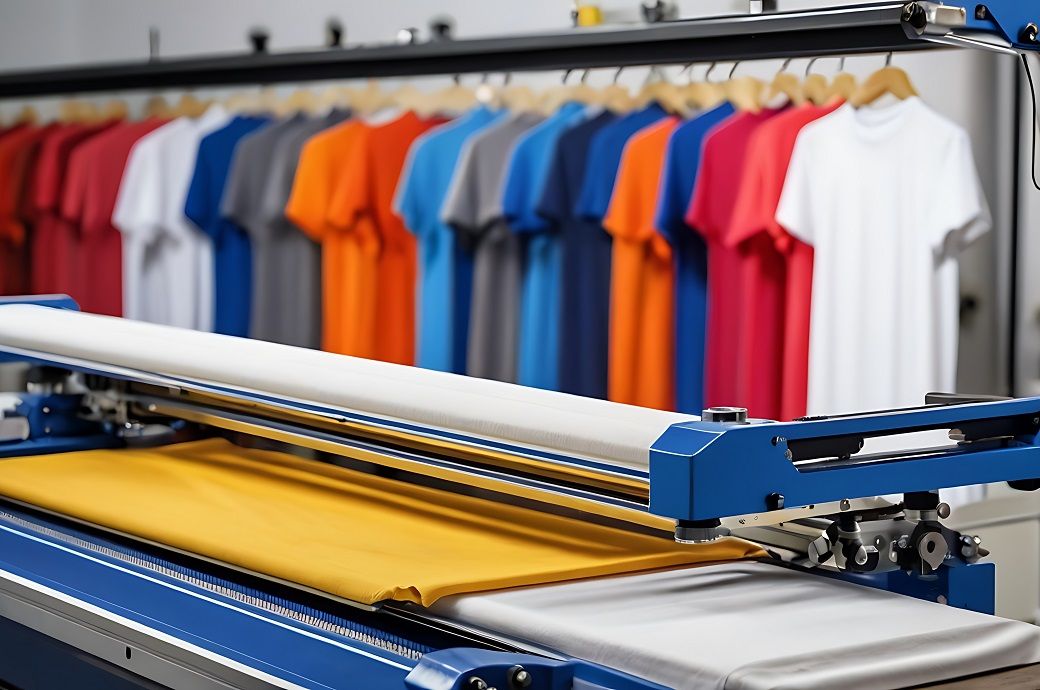
In a post on the Truth Social platform, Trump revealed both the new tariff measure and an additional, unspecified ‘penalty’ targeting India. While the nature of this penalty remains unclear, Trump appeared to link it to India’s purchase of Russian arms and oil, suggesting it was a retaliatory move tied to geopolitical concerns.
In response, India’s Ministry of Commerce and Industry acknowledged the announcement and reiterated the country’s commitment to reaching a fair and mutually beneficial trade agreement with the US, according to media reports.
The ministry’s statement conveyed a measured approach, signalling India’s intent to continue dialogue despite the new trade barrier.
Meanwhile, Trump’s announcement has stirred concern within industry circles, especially the textile and apparel sector, where the US serves as one of India’s most important export markets.
With the new tariff potentially impacting competitiveness and trade volumes, industry stakeholders are closely watching the developments.
“The tariff of 25 per cent is higher than what we expected but we should not be overly worried as long as Vietnam and Bangladesh tariffs are not revised downward from the current levels. Apparel exports are expected to slow down till the announcement of an interim BTA, hopefully to conclude in Oct-Dec 2025,” said Sudhir Sekhri, chairman AEPC, on US tariff, adding, “The penalty is a grey area and we hope the Government of India (GOI) will negotiate this with the US before Aug 1, 2025.”
The United States is a crucial market for India’s RMG exports, accounting for around 33 per cent of India’s total garment exports in 2024.
“The 25 per cent tariff by the US comes as a temporary setback, especially when expectations were set around 15–20 per cent. While it might lead to a slowdown in the short term, we believe it's not a long-lasting disruption. Our Free Trade Agreement with the UK opens up varied opportunities and is a welcome move for the industry. India’s capacity and trained labour constraints remain, what will set us apart is focus on the UK market to ensure sustained business,” said Rajeev Gupta, joint managing director, RSWM Ltd, speaking to Fibre2Fashion while adding, “Indian entrepreneurs and manufacturers are resilient, and we are confident that business momentum will be consistently rising with planned strategies. What remains crucial is clarity on the tariff position against China. A more pressing concern is the undefined penalty clause linked to India’s ties with Russia, which adds a layer of uncertainty”
It may be mentioned here that China continues to be the top exporter, with a market share of 21.9 per cent in 2024, down from 27.4 per cent in 2020.
“The 25 per cent tariff will have a short-term impact for sure. However, we are still better placed than countries like Bangladesh and Cambodia, both of which have higher tariff rates,” said N Thirukkumaran, general secretary of Tiruppur Exporters' Association (TEA) to Fibre2Fashion, who felt the new tariff could be a part of the greater plan to put pressure on India to have greater access to the Indian domestic market including to sectors like farming and diary.
Trump himself hinting at continuing the negotiations with India, Thirukkumaran expressed hope, India can still negotiate a ‘fair deal’.
“It would be premature to guess the implications as the picture is hazy and rather wait till the fine print is out,” underlined Gautam Ganeriwal, executive director at Sitaram Spinners Pvt Ltd, interacting with Fibre2Fashion.
He, however, felt it was Donald’s Trump’s usual way of negotiation even as he expressed happiness at India’s ‘measured response’.
Commenting on the India-US trade deal, Rahul Mehta - chief mentor of Clothing Manufacturers Association of India (CMAI), said, “Whilst the announced levy of 25 per cent does come into effect, it would indeed be a surprising twist to our expectations on the way the trade talks were proceeding. However, having seen the several about turns on the tariff front in the case of other countries, I would not press panic buttons right now. But, if the proposed terms do come into effect, it will make our products 7 per cent to 10 per cent more expensive than some of our competitors, and it will certainly hurt our apparel exports to the US.”
Fortunately, this set-back has come at the time when India has just signed an FTA with UK and are proceeding rapidly with FTA with EU, he felt.
“So yes, it is tough times, but not beyond our ability to face,” stated Mehta to wind up on a positive note.
ALCHEMPro News Desk (DR)
Receive daily prices and market insights straight to your inbox. Subscribe to AlchemPro Weekly!